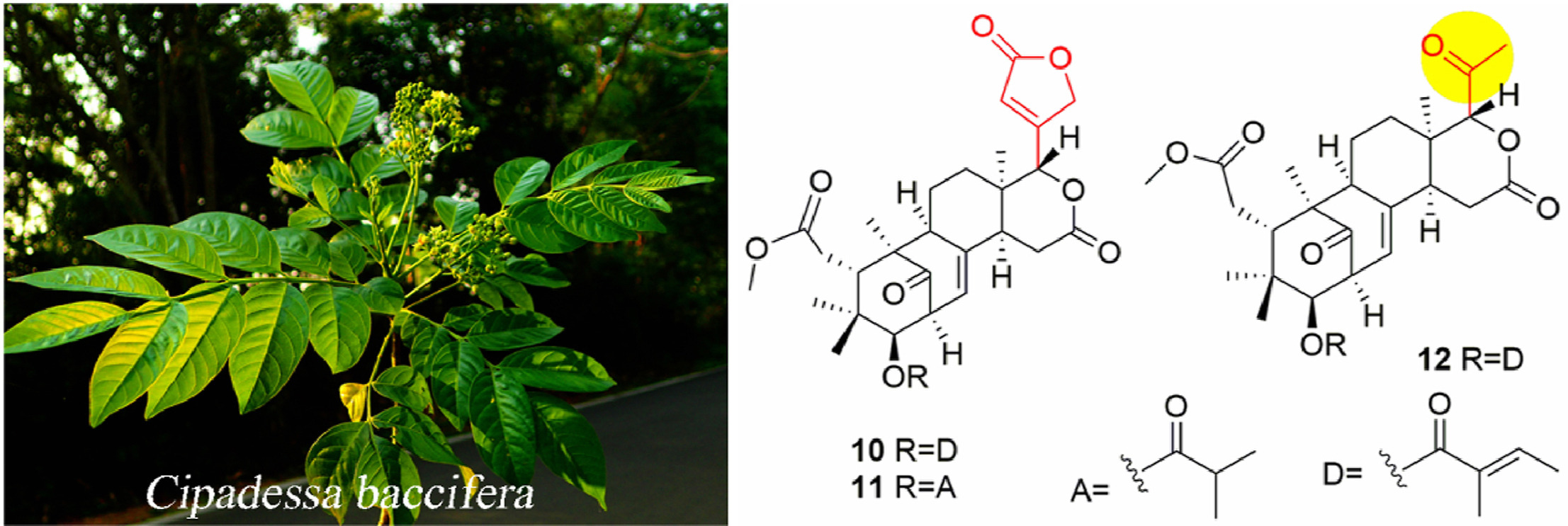Cipadessa baccifera is a bushy shrub with pinnate leaves mainly distributed in tropical Asia. It has been traditionally used as folk medicine by Dai people in Xishuangbanna, SW China for treatment of various diseases such as dysentery, malaria, pruritus (itchy skin), rheum, rheumatism, and burns and scalds.
Previous phytochemical researches on Cipadessa species have led to the isolation of structurally diverse limonoids (e.g., mexicanolides, methyl angolensates, trijugins, and cipadesins).
In the continuing search for biologically active limonoids from Meliaceae plants, researchers from Xishuangbanna Tropical Botanical Garden (XTBG) isolated twelve previously undescribed limonoids and seven known analogues from the leaves and twigs of C. baccifera.
The researchers conducted a phytochemical study on the petroleum ether fraction of the twigs and leaves of C. baccifera. They isolated nineteen mexicanolide-type limonoids including twelve previously undescribed limonoids (1–12) and seven known analogues (13–19).
Moreover, cipaferen R (12) is the first biodegraded tetranortriterpenoid derivative featuring a unique acetyl group at C-17. Among these isolates, no compounds exhibited nematicidal activities against the root knot nematode, M.incognita and antifungal activities against F.oxysporum f. sp. cubense and R.solanacearum.
They also demonstrated that several mexicanolide-type limonoids (1, 14, 17, and 18) possessed moderate acetylcholinesterase inhibitory activities.
“This study not only enriches the chemical diversity of mexicanolide-type limonoids in the Meliaceae family but also forms a basis for the discovery of bioactive natural products from Meliaceae herbs,” said Prof. XU Youkai, correspondence author of the study.
The study was partly supported by the International Partnership Program of Chinese Academy of Sciences and published in Phytochemistry.
Contact
XU Youkai Principal Investigator
Department of Gardening and Horticulture, Xishuangbanna Tropical Botanical Garden, Chinese Academy of Sciences, Menglun, Mengla, Yunnan 666303, China
E-mail: xyk@xtbg.ac.cn

Twelve previously undescribed mexicanolide-type limonoids, together with seven known analogues were isolated from the twigs and leaves of Cipadessa baccifera. (Image by CAO Donghua)

